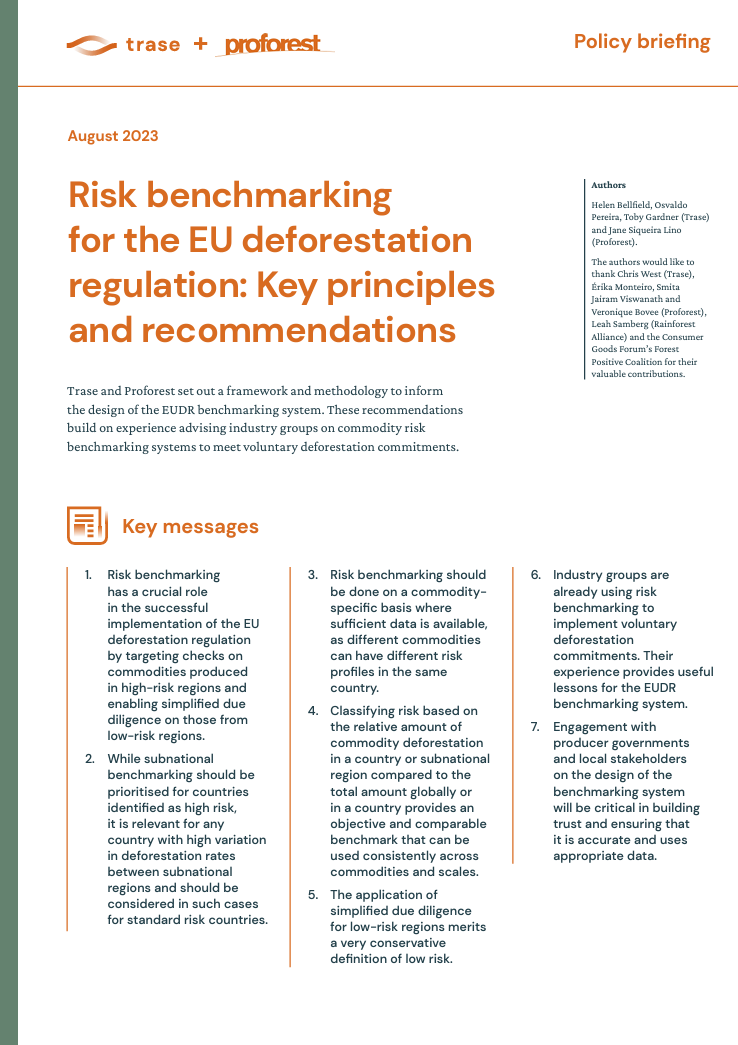Risk Benchmarking for the EU Deforestation Regulation: Key Principles and Recommendations
This policy briefing sets out a framework, methodology and recommendations to inform the design of the EU deforestation regulation (EUDR) risk benchmarking system. Risk benchmarking has a crucial role in the successful implementation of the EUDR by targeting checks on commodities produced in high-risk regions and enabling simplified due diligence on those from low-risk regions. Some of the recommendations in the report include that risk benchmarking should be done on a commodity-specific basis as different commodities can have different risk profiles and using a conservative definition of low-risk for these regions. The briefing also highlights that engagement with producer government and local stakeholders on the design of the benchmarking system will be crucial in building trust and ensuring it is accurate and uses appropriate data.
The findings highlighted in the report are built upon experience by Trase and Proforest on advising industry groups on commodity risk benchmarking systems to meet voluntary deforestation commitments. This is presented in two case studies: the first, classifying deforestation and ecosystem conversion risk for beef at national level; and the second, for soy at subnational level in Brazil.
